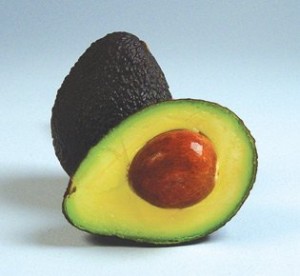
More evidence that low-calorie sweeteners are bad for your health
Studies show that artificial sweeteners can raise the risk of hypertension, metabolic syndrome, type 2 diabetes and heart disease, including stroke.

Natural Health News — Eating one avocado a day as part of a heart healthy, cholesterol-lowering moderate-fat diet can help improve bad cholesterol levels in overweight and obese individuals, according to new research
Researchers tried to find out what effect avocados had on several risk factors for cardiovascular disease by replacing saturated fatty acids from an average American diet with unsaturated fatty acids from avocados.
For the study, 45 healthy, overweight or obese patients between the ages of 21 and 70. Participants consumed an average American diet (consisting of 34% of calories from fat, 51% carbohydrates, and 16% protein) for two weeks prior to starting one of three cholesterol lowering diets:a lower fat diet without avocado, moderate-fat diet without avocado, and moderate-fat diet with one avocado per day.
The two moderate fat diets both provided 34% of calories as fat (17% of calories from monounsaturated fatty acids/MUFAs), whereas the lower fat diet provided 24 percent of calories as fat (11% from MUFAs). Each participant consumed each of the three test diet for five weeks. Participants were randomly sequenced through each of the three diets.
Researchers found:
These measurements are all considered to be cardio-metabolic risk factors in ways that are independent of the heart-healthy fatty acid effects, said Penny M. Kris-Etherton, PhD, RD, senior study author and Chair of the American Heart Association’s Nutrition Committee and Distinguished Professor of Nutrition at Pennsylvania State University, in University Park, Pennsylvania.
Healthy fats and more
For the study researchers used Hass avocados, the ones with bumpy green skin. In addition to MUFAs, avocados also provided other bioactive components that could have contributed to the findings such as fibre, phytosterols, and other compounds.
According to researchers, many heart-healthy diets recommend reducing levels of saturated fats, and replacing them with MUFAs or polyunsaturated fatty acids to reduce the risk of heart disease.
The Mediterranean diet, includes fruits, vegetables, whole grains, fatty fish, and foods rich in monounsaturated fatty acids-like extra-virgin olive oil and nuts. Like avocados, some research indicates that these not only contain better fats but also certain micronutrients and bioactive components that may play an important role in reducing risk of heart disease.
“We need to focus on getting people to eat a heart-healthy diet that includes avocados and other nutrient-rich food sources of better fats,” Kris-Etherton said.
“In the United States avocados are not a mainstream food yet, and they can be expensive, especially at certain times of the year. Also, most people do not really know how to incorporate them in their diet except for making guacamole. But guacamole is typically eaten with corn chips, which are high in calories and sodium. Avocados, however, can also be eaten with salads, vegetables, sandwiches, lean protein foods (like chicken or fish) or even whole.”

Please subscribe me to your newsletter mailing list. I have read the
privacy statement